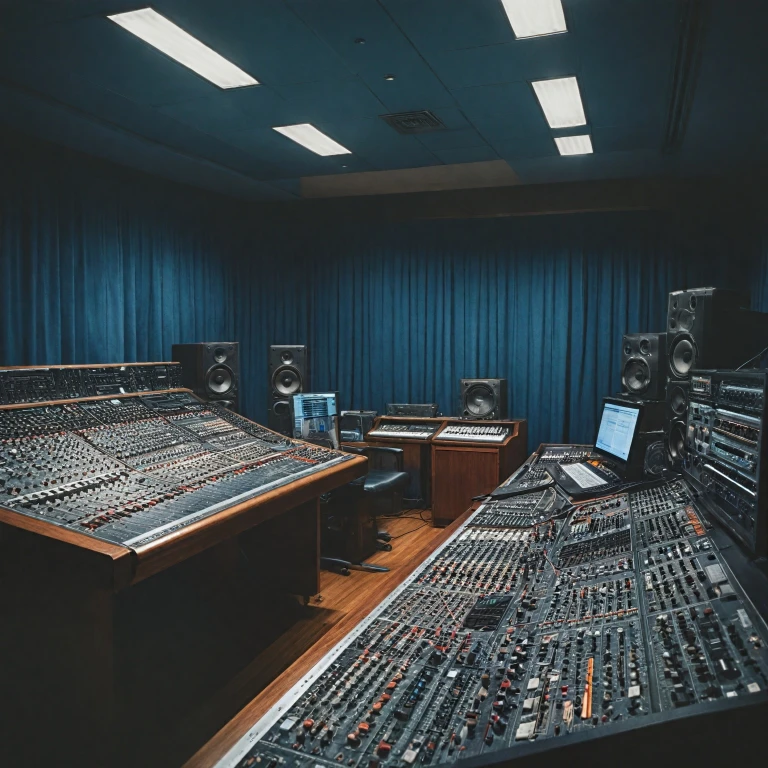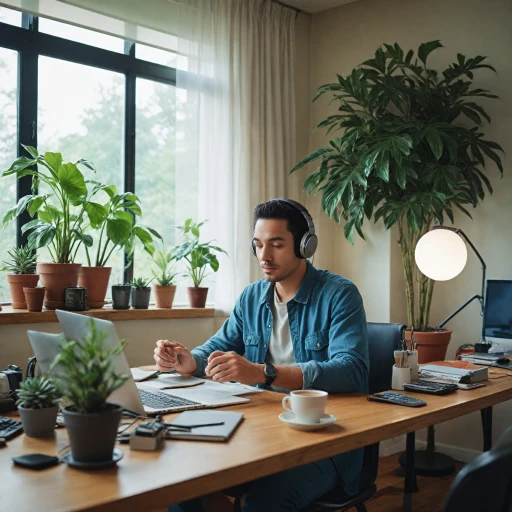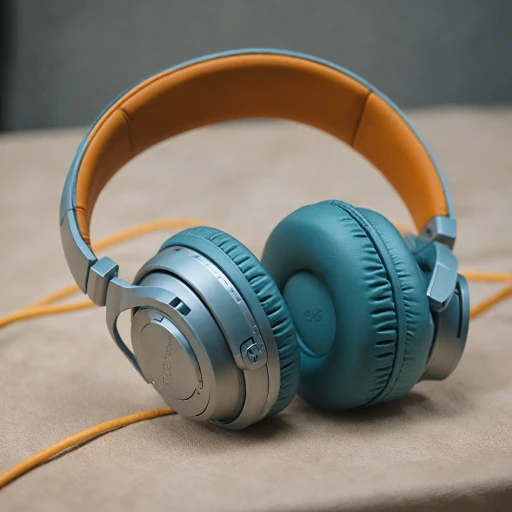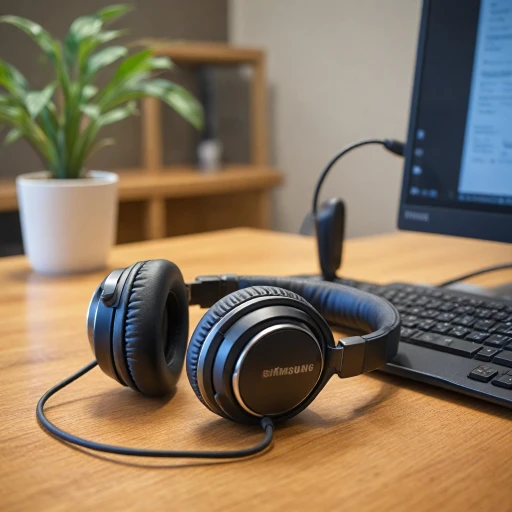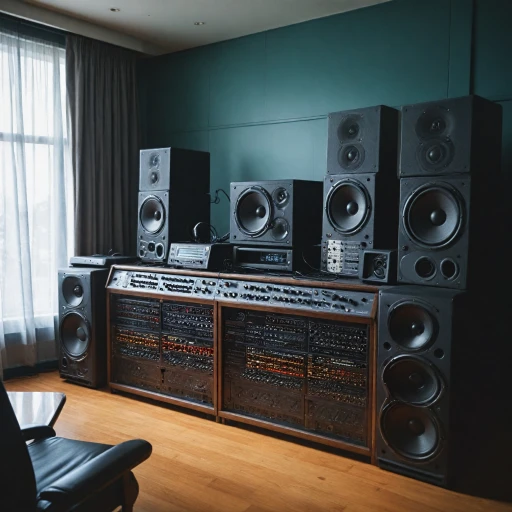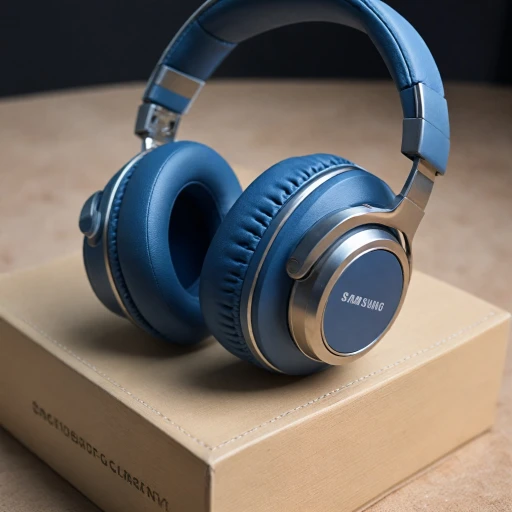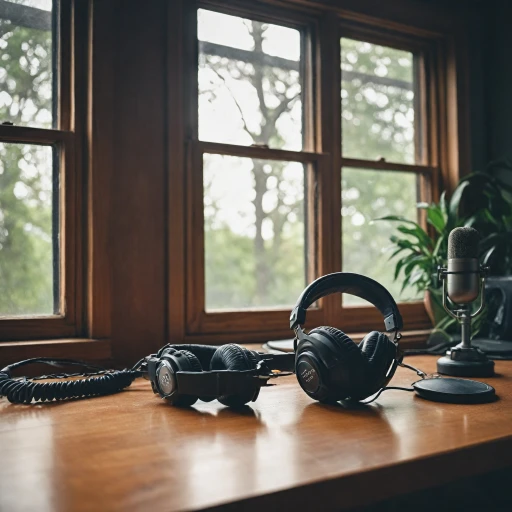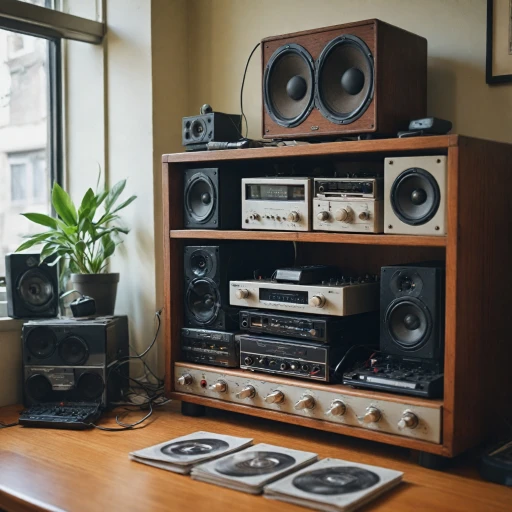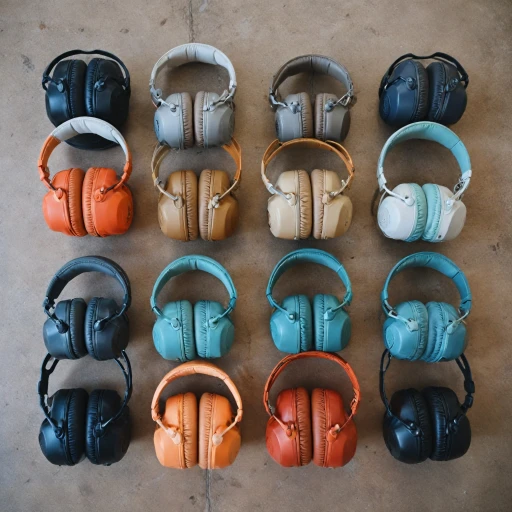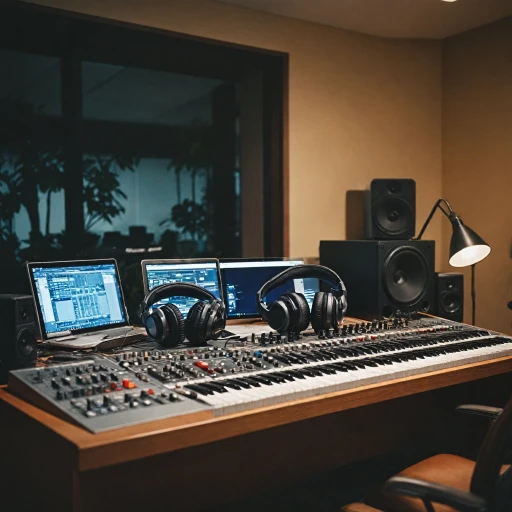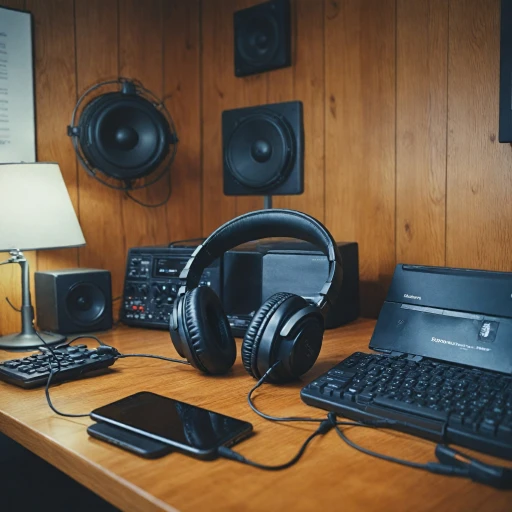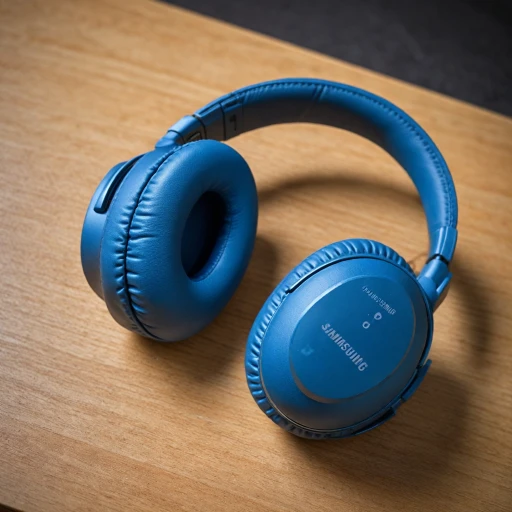What Makes Recording Studio Headphones Unique?
Distinctive Features of Recording Studio Headphones
Recording studio headphones are meticulously engineered to offer a seamless audio experience, which is crucial for both recording and mixing purposes. Unlike regular headphones, which may prioritize bass-heavy sound to appeal to the general audience, studio headphones aim for balanced and accurate sound reproduction. This characteristic makes them invaluable in studio settings.Precision in Sound
Studio headphones often come with a flat frequency response, ensuring that no particular frequencies are emphasized. This helps audio engineers and musicians hear the mix as it truly is, without any coloration. Brands like Audio Technica (ath) and Sennheiser Pro are renowned for producing such balanced audio. Open-back and closed headphones are some common designs, each offering unique benefits. Open headphones provide a natural soundstage, while closed models excel at isolating external noise.Comfort for Extended Use
Comfort is another pivotal aspect of studio headphones, as they are typically worn for long periods while mixing and mastering tracks. Products like the Beyerdynamic Pro series are celebrated for their comfortable fit and ergonomic design, making them some of the best headphones available for prolonged studio sessions. Cushioning around the ear and lightweight construction contribute significantly to reducing fatigue during extensive use.Build Quality and Durability
Durability is as crucial as sound quality. The high-quality materials used in reputable brands like Sennheiser and Beyerdynamic ensure longevity, which is a wise investment for professionals. Notably, the high price tag of studio headphones often reflects the robust construction and premium materials, ensuring they withstand the rigorous demands of professional use.A Preferred Choice for Professionals
While brands like Sony mdr and Planar Magnetic headphones are also praised for their impeccable sound and build quality, each product offers distinct features catering to varied needs. Selecting the best studio headphones for recording and audio mixing often involves evaluating factors such as comfort, frequency response, and sound isolation—traits that every serious audiophile should consider. For further insights into top music studio headphones, check out this comprehensive review which delves into options tailored for noise cancellation needs.The Science Behind Noise Cancellation
The Mechanisms Behind Noise Cancellation
Noise-canceling headphones have become a staple in the recording studio environment, offering a sanctuary of silence amidst the hustle and bustle of audio production. The technology primarily relies on two types of noise cancellation: passive and active. Passive noise cancellation involves the physical design of the headphones, which blocks out sound through materials that create a seal around the ears. This is where closed headphones shine, as their design is optimized for isolating sound.
Active noise cancellation (ANC), on the other hand, uses advanced technology to further reduce unwanted ambient sounds. It works by using microphones to pick up external noise and then generating sound waves that are the exact opposite, effectively canceling out the noise. This is particularly beneficial in a studio setting where precision is key, and even the slightest interference can affect the mixing and mastering process.
Impact on Sound Quality and Mixing
The ability of noise-canceling headphones to provide a quiet environment allows audio professionals to focus on the intricate details of sound quality. Brands like Beyerdynamic Pro and Sennheiser Pro are renowned for their balanced sound and frequency response, making them popular choices among studio professionals. These headphones ensure that the audio engineer can hear every nuance, which is crucial for achieving the best studio results.
Moreover, the comfort offered by top-tier headphones such as Audio Technica and Sony MDR cannot be overlooked. Long hours in the studio demand headphones that not only deliver superior audio but also provide comfort to prevent fatigue. The design of open headphones and closed headphones caters to different preferences, with open designs offering a more natural sound and closed designs providing better isolation.
Evaluating the Best Options
When considering the best headphones for studio use, factors such as price, comfort, and sound quality play a significant role. Reviewing options on platforms like Amazon can provide insights into user experiences and preferences. Whether you're looking for planar magnetic headphones or a reliable pair for mixing mastering, understanding the science behind noise cancellation can guide you in choosing the best headphones for your studio needs.
Benefits of Noise-Canceling Headphones in a Studio Setting
Advantages of Using Noise-Canceling Headphones in a Recording Studio
Noise-canceling headphones have become an essential tool in the recording industry, offering a variety of benefits that enhance audio production. These headphones are designed to immerse the user completely in sound, providing an unparalleled auditory experience crucial for mixing and mastering tasks.
One of the primary advantages of using these headphones in a studio setting is the ability to create a controlled listening environment. By minimizing external noise distractions, musicians, sound engineers, and producers can focus entirely on the music being produced. This ability to zero in on the audio without outside interference enables a more detailed and precise mixing and mastering process, crucial for achieving top-tier sound quality. High-end models like the Sennheiser Pro and Beyerdynamic Pro are often favored for their excellent frequency response and comfort during long studio sessions.
Moreover, noise-canceling headphones ensure that audio is heard as intended. They help maintain the integrity of the sound, allowing artists and engineers to detect subtle nuances that open headphones might miss. This attention to detail is vital for producing balanced sound that translates well across different playback systems. Whether it’s the closed headphones from Audio Technica or the flexible Sony MDR series, the focus remains on delivering the best studio experience possible. For those interested in discovering the unique benefits of specific headphone models, exploring the advantages of the DT 770 headphones can provide deeper insights.
Challenges in Noise Cancellation for Studio Use
Finding the Balance: Noise Cancellation Challenges in Studios
In the intricate environment of a recording studio, the role of noise-canceling headphones cannot be overstated. Studios demand a certain precision that can be hindered by extraneous noise, and while noise canceling is quite beneficial, it does come with its own set of challenges. One of the main issues is the potential alteration of sound frequency response when using noise-canceling features. Studios require a balanced sound for accurate audio mixing and mastering, and some noise-canceling headphones might not deliver this level of quality consistently. For instance, while studio headphones like the beyerdynamic pro and sennheiser pro models strive to maintain high sound quality, the very technology that helps to cancel noise can inadvertently affect the audio output in ways that may not suit every mixing need. Additionally, closed headphones are often favored in studios for their superb isolation. However, they can sometimes create a sense of ear fatigue during extended use. This is where open headphones might offer more comfort, though they sacrifice some degree of noise isolation. Brands such as Audio Technica and Beyerdynamic produce models designed to address these ties between comfort and sound quality, but the choice often boils down to personal preference and specific studio requirements. Moreover, the price of studio headphones with effective noise-canceling capabilities can be a deterrent for some. High-quality options from trusted names like Sony and Sennheiser don't come cheap, and investing in a pair of the best headphones for studio use requires careful consideration of both budget and the particular needs of the studio environment. In cases where accuracy of sound reproduction is paramount, the challenge lies in finding the right balance between exceptional noise cancellation and preserving the audio's pristine nature. High-end headphones like planar magnetic models may offer solutions, but these too require a keen ear and understanding of what the studio work demands. Ultimately, while techno-wizardry continues to evolve, offering better solutions, challenges remain in selecting headphones that fit the dual demands of superior noise cancelation and impeccable sound quality in a way that complements the unique acoustics of each studio setting.Choosing the Right Recording Studio Headphones
Consider the Type: Open vs. Closed
Choosing the right recording studio headphones can feel overwhelming given the variety of options available. One of the essential considerations is whether to opt for open or closed headphones. Open headphones offer a more natural and spacious sound, ideal for mixing and mastering, providing excellent audio quality. In contrast, closed headphones are better suited for recording due to their superior noise isolation properties, preventing audio bleed into your microphones.Frequency Response and Sound Quality
Sound quality should be at the top of your list when selecting studio headphones. Look for models with a broad frequency response, ensuring they can accurately reproduce everything from deep bass to high treble. Brands like Sennheiser Pro, Beyerdynamic Pro, and Audio Technica are renowned for their sound quality, often mentioned in reviews for delivering a balanced sound. Additionally, investing in headphones with good quality drivers will enhance your mixing mastering experience.Comfort and Durability
Hours can be spent in the studio, so comfort is crucial. Headphones that are comfortable provide ease of use during long sessions without causing discomfort. Consider models like the Beyerdynamic Pro series, known for their plush padding and ergonomic design. Additionally, robust build quality ensures that your headphones withstand the rigors of consistent use, offering excellent price value.Trusted Brands and User Reviews
When it comes to making the best choice, always check user reviews on platforms like Amazon. This helps gauge user experience with sound quality, durability, and comfort. Brands such as Sony MDR, Technica ATH, and Sennheiser have built a reputation through consistent positive reviews and therefore instill trust in their users.Budget Considerations
Finally, consider your budget. While high-quality studio headphones can be expensive, options like the Planar Magnetic headphones offer great sound and build quality within a moderate budget. It's essential to balance your need for quality audio with your financial limits to make the best choice for your studio setup.Future Trends in Noise-Canceling Headphones
Anticipating the Advancements in Studio Headphones
The world of audio technology is continually evolving, and noise-canceling headphones are no exception. As recording studios demand higher fidelity and clearer sound isolation, manufacturers are pushing the boundaries with new innovations and enhanced features. Key trends to watch include the integration of planar magnetic technology, improvements in frequency response, and the development of more adaptable ear designs.
Planar magnetic drivers are gaining traction for their ability to produce a more balanced sound with lower distortion, essential for studio settings where accuracy is paramount. Although traditionally more expensive, this technology is gradually becoming more accessible, offering studios the opportunity to invest in quality without sacrificing budget.
With studios requiring headphones that blend both comfortable long-term wear and superior sound quality, many brands are enhancing their flagship models. Sennheiser, Audio-Technica, and Beyerdynamic are at the forefront, often featured in "best headphones" reviews for their innovative solutions tailored for audio professionals. Studios may also need to decide between closed headphones, which offer better isolation, or open headphones, that provide a wider soundstage.
As the demand for wireless solutions grows, manufacturers are working on minimizing latency for mixing and mastering tasks, enhancing the overall utility of wireless models in the studio environment. Moreover, with the inclusion of advanced DSP (Digital Signal Processing) algorithms, headphones are now more capable of adapting to various environments, ensuring that whether you are in a state-of-the-art recording studio or a more casual setup, the sound quality remains uncompromised.
Finally, the future may witness a greater fusion of artificial intelligence with headphones, predicting user behavior and adjusting settings in real-time for personalized audio experiences. As these trends converge, the next generation of noise-canceling studio headphones promises an exciting horizon for both audio professionals and enthusiasts alike.
